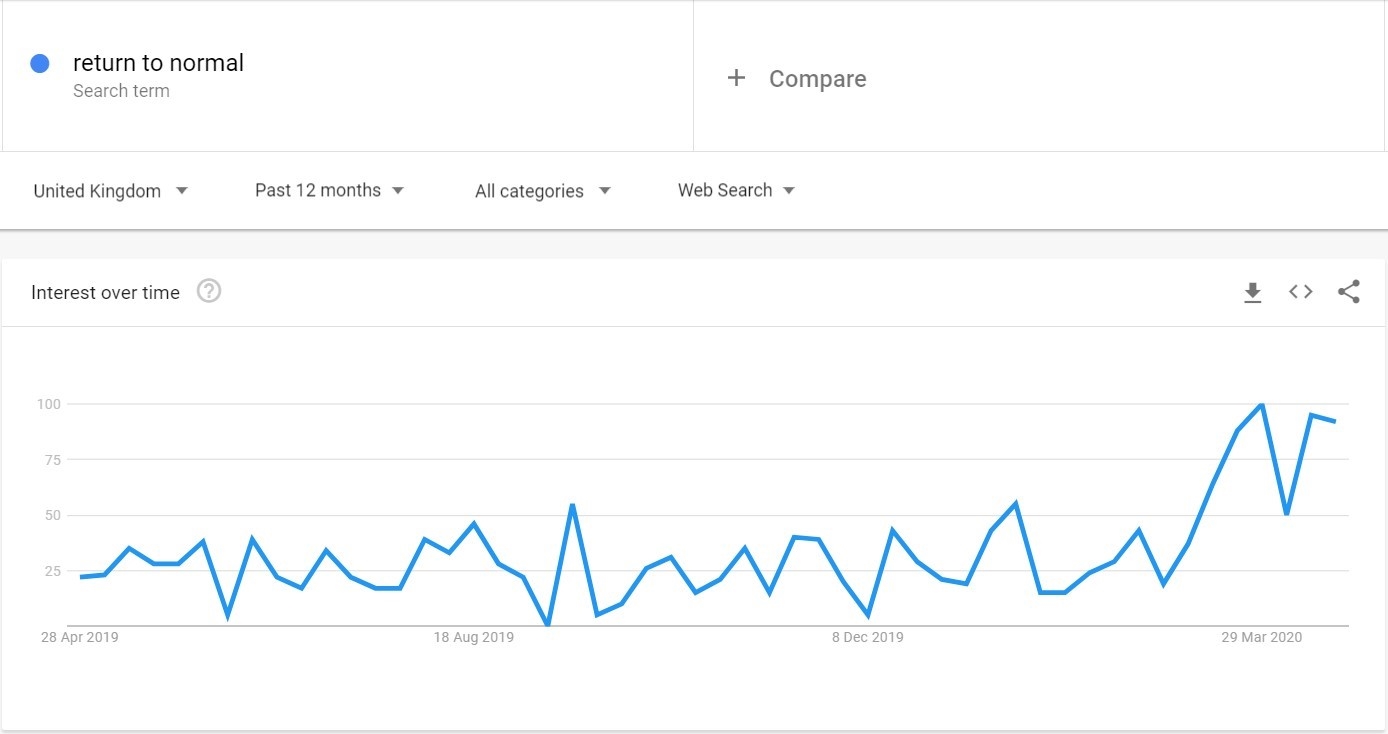Both personally and professionally, there is a genuine human need to believe that the current situation is moving closer to a ‘return to normal’.
While the notion of ‘normal’ is undoubtedly subjective, there are positive indications that a return to a ‘new normal’ may be sooner rather than later for many businesses.
Much has been documented on the practical actions to complete during lockdown. This article builds on those lessons, focusing primarily on the steps required to maximise the ‘business as usual’ opportunity for companies.
Pivoting towards forward planning
When people experience unusual circumstances and unexpected change, the default position is often one of caution and assessment of personal impact.
Now though, after several weeks of coronavirus lockdown, measures and mindsets have become more practical, balanced and objective.
There’s been a shift towards forward thinking and prediction of behaviour, with the aim of recovering any lost financial ground and underpinning new seeds of business growth.
This shift can be seen visually in Google Trends UK data on the search demand for ‘return to normal’:

Source: Google Trends.
New form of business as usual marketing
Marketing now, and after the immediate (short to medium term) impact of the current social and economic climate, will not be simply a case of pressing ‘go’ and following previous plans for the new financial year.
Things have changed. People have changed. Trends and data have changed.
Return to normal marketing (notably online and digital marketing) will present many fresh and exciting opportunities for companies, plus countless challenges too.
Your competitive landscape will have transformed rapidly over the past few weeks, and will continue to do so for the months to follow.
Depending on what they do now, brands could be left behind or capture a new market share, and it’s not too late to ensure it’s the latter.
Maximising new opportunities
For many, periods of difficulty and change fuel innovation, experimentation and accomplishment.
There have been many online marketing changes which have helped organisations reignite financial growth.
As an example of this in action, Google recently announced free listings for Google Shopping, meaning that there is a huge opportunity to list products on the platform for free alongside the current paid listings.
If your business has more than 10 retail locations you can now (for a limited time only) bulk update Google My Business Post features to push out your company communications within the search results for free.
Agile trend marketing
Looking at top-level data will undoubtedly provide a picture of turmoil, decline and fluctuation for many websites and wider industries at the moment.
But, once you look further into the data, in most cases there are new, changing and often unexpected areas of untapped potential waiting to be realised.
For eCommerce stores, you will want to ensure:
- People know you are open for business.
- Delivery information is clearly marked.
- Product pricing, placement and promotion is tested frequently
- Stock levels are managed to optimum levels.
- Organic search is picking up any currently non-feasible paid/PPC product ranges.
- Non-sales content is created to support your audience.
- The website loads quickly, displays clear trust signals, and is secure.
- Paid marketing is maintained with agile budgets that maximise return on advertising spend.
- Google My Business and website opening hours / online availability and coronavirus response information is clearly available.
As you might expect, some industries are thriving in the current climate. Based on UK eCommerce data from the latest eConsultancy report:
- Month-on-month growth in March compared with February 2020 saw an increase of 2.6%.
- Sales of gardening tools and supplies rose by over 94%.
- Electronics (up 40%), as consumers invested in entertainment products.
- 24% said that they want to purchase more (apparel) through social media and a further 18% want to buy more online.
Whether your industry is in a time of increased demand or not, there are always data-driven ways to make your website work harder for every visitor, and expand its search visibility to new and relevant audiences.
Business & Finance Articles on Business 2 Community
(31)
Report Post








